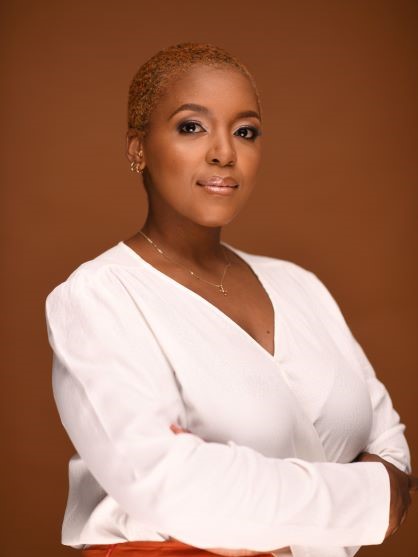Senior Research Fellow and International Scholar Studies the Intersection of Pharmacy and Public Health
 Dr. Zana Wangari Kiragu’s global perspective and passion for helping others shapes her work
Dr. Zana Wangari Kiragu’s global perspective and passion for helping others shapes her work
Growing up in Kenya with almost endless curiosity and a passion for learning, Dr. Zana Wangari Kiragu, Senior Research Fellow, has forged both a meaningful and impactful career path in global public health. A pharmacist by training, Dr. Kiragu says her exposure to a completely different health system in the UK, during her undergraduate years, piqued her interest in trying to understand the ways that policy and place shape how pharmaceutical services are delivered.
“I’m a very curious mind, and I have a passion for people and learning,” she says. “I think engaging in public health research is really the best space to bring those passions together. Because I was born and raised in Kenya — in a community that was very collectivist in nature — that shaped my belief that every human being deserves access to health.”
The work she has done as a scholar in the last few years has been focused on the intersection of pharmacy and public health, examining access to medicines — including their availability, affordability, acceptability, accessibility and quality.
Access to Medicines Impact Evaluation
Since joining BU just before the pandemic, Dr. Kiragu has been involved in two major global research projects, while also pursuing a Doctor of Public Health (DrPH) degree part-time. The first was an impact evaluation of a big pharmaceutical companies’ access program in Kenya, taking her back to her home country temporarily. Pharmaceutical companies often have access programs as part of their corporate social responsibility, and as far as the research team were aware, it was the first randomized assessment of the impact of a pharmaceutical industry-led access program.
“I was involved, alongside others, in trying to see if this access program actually had the impact it was designed to have to improve the availability and affordability of chronic disease medication,” Dr. Kiragu says.
While the program set a fixed, low price for specific medicines and made them available on the Kenyan market, it did not improve the availability of those medicines. After sharing findings with local government officials, one key piece of feedback was that some of the medicines were still expensive by local standards, underscoring the need to co-create programs with those who understand the context.
“This work really demonstrated the importance of having transparent reporting and the role in bridging the pharmaceutical or private sector with the public health needs of the populations,” she says.
As a global health researcher, Dr. Kiragu and her colleagues are often working across geographies and have to think about the quality of their global partnerships, who is defining the programs, and how everyone’s perceptions are considered and included.
“I’m very curious about what motivates different players to be involved and invested in public health, and how we align different priorities towards the shared goal of ensuring improved health of the public” she says.
Doctoral Research – Faith-Based Organizations in Pharmaceutical Systems
Informed by this, Dr. Kiragu focused her doctoral dissertation on the faith-based sector and its role in the pharmaceutical system. She centered her research on the Ecumenical Pharmaceutical Network (EPN), a global faith-based non-profit seeking to support pharmaceutical service delivery and supply chains within church health systems.
Using a scoping review and mixed-methods approach, her work applied a pharmaceutical system strengthening (PSS) framework to understand the strengths, weaknesses, opportunities, and threats facing faith-based organizations (FBOs) in pharmaceutical systems. She used these findings to propose actionable strategies for FBOs to optimize their operations and contribute more strategically to system strengthening, and her work has informed the development of EPN’s next strategic plan.
Multi-Drug-Resistant Tuberculosis Clinical Trial
The second research project she has been involved with at BU is in implementing a clinical trial in Asia. Because the trial started in 2020, they have run everything remotely.
“We have three pharmaceutical companies from the US, Europe and Asia that donated study drugs, and we have sites in two different countries with different regulations,” she explains. “It’s a huge undertaking and we did start off with a pretty large human resource base.”
Now in its fifth year, the trial is winding down, and Dr. Kiragu’s role has expanded to focus on all aspects of managing the trial — not just being focused on the supply chain and pharmacovigilance as a pharmacist. She says that a critical success factor in the trial’s implementation was their long-standing relationships with international research institutions, which helped in recruiting patients.
“One of the things we value in the global public health space, and something I’m coming to learn, is the importance of partnerships across geographies and how that sustains the work we do,” she says. “Everybody has different expertise, different resourcing, and we need to make sure that we’re engaging strategically, we’re engaging fairly, and leveraging each other’s strengths towards the shared goal of improving the lives of patients that need it.”